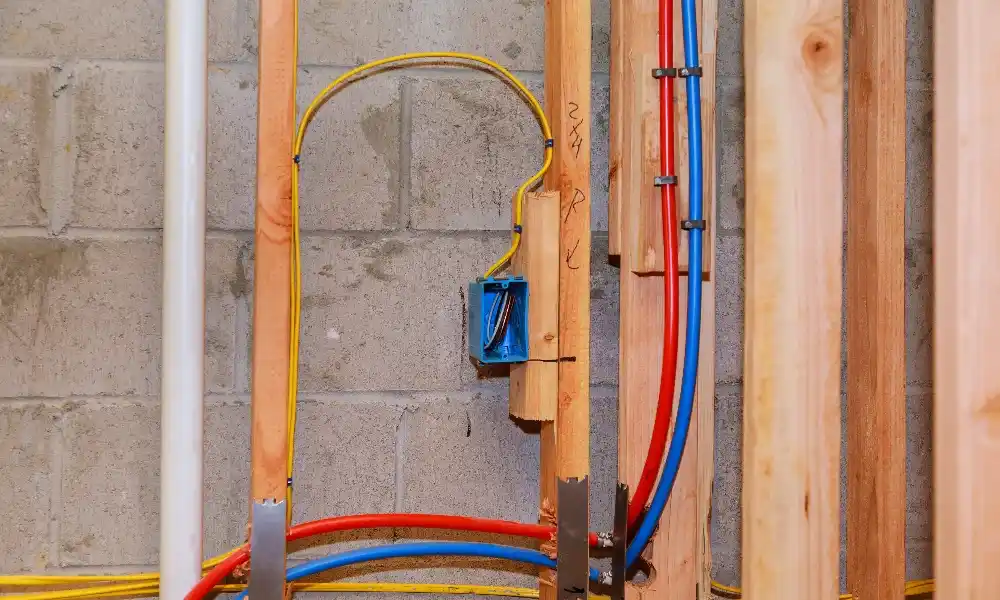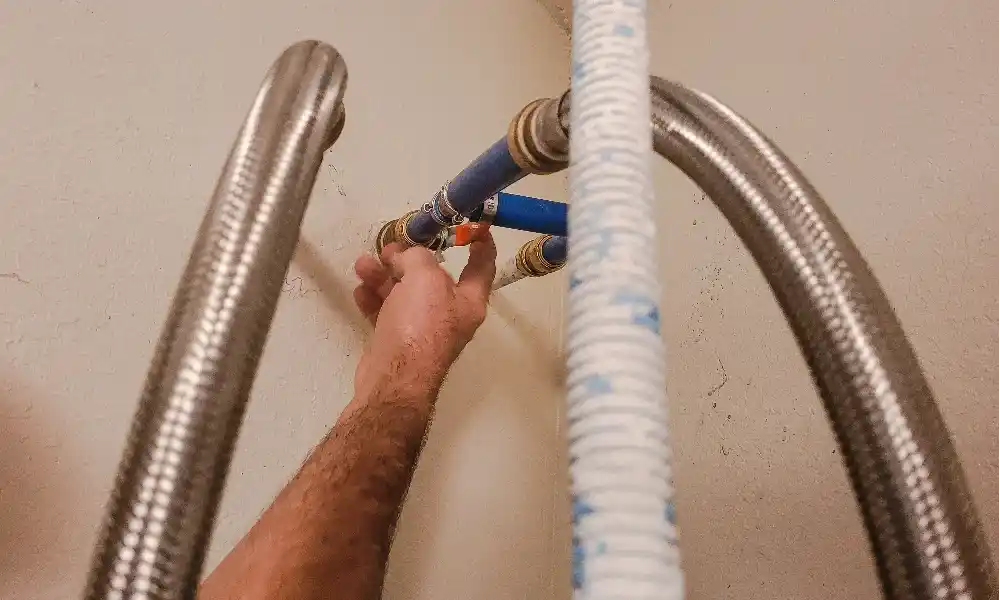
Homeowners frequently want low-cost, straightforward solutions for plumbing or gas piping. PEX is a common choice for water systems due to its versatility and low cost. However, the burning question remains: can you utilize PEX for gas lines? At first sight, it appears to be a convenient solution, but the truth is quite different. To clear up any uncertainty, let’s look at where PEX works well, why it fails with gas, and which approved alternatives to consider.
What Is PEX Piping?
PEX stands for cross-linked polyethylene. This robust yet flexible plastic tubing is commonly utilized in plumbing installations due to its resistance to freezing and corrosion. Its flexibility to bend eliminates the need for fittings and allows for faster installation than rigid pipe.
Typical Applications of PEX in Plumbing
Residential Water Supply Lines
PEX is a popular alternative for distributing hot and cold water in residences. Its long life and simple installation make it popular among plumbers.
Radiant Floor Heating Systems
When used in radiant floor heating, PEX tubing allows hot water to run beneath the flooring, providing houses with even and efficient heat.
Hydronic Baseboard Heating
PEX also works well with hydronic baseboard heating systems, transporting hot water to several rooms efficiently.
Ice Maker and Appliance Connections
PEX’s modest size and flexibility make it perfect for appliances such as refrigerators with icemakers and dishwashers.
Hot and Cold Distribution Manifolds
Hot and cold water are distributed evenly across multiple fixtures using centralized manifolds coupled with PEX.
Can You Use PEX for Gas Lines?
The key question: Can you use PEX for gas line installations? The plain and simple answer is: no. While PEX is ideal for water applications, it does not meet the safety requirements for gas piping. Let us look at the risks.
Flammability and Combustion Concerns
PEX is a material that melts or burns easily. In the event of a gas leak, the risk of fire and combustion increases dramatically.
Permeability and Chemical Reaction Issues
Natural gas molecules can flow through the walls of PEX tubing. Over time, this weakens the line and raises safety concerns. Some gases may also react chemically with the tube.
Safety Risks With Gas Pressure and Leaks
Risk of Cracking or Splitting Under Pressure
Gas pressure is vastly different from water pressure. Continuous gas pressure may cause PEX tubing to crack or split.
Potential for Gas Leaks Through Fittings
Even with PEX gas line fittings, the joints cannot securely hold flammable gases. The risk of leaks is extremely significant.
Lack of Certification for Gas Applications
PEX lacks the necessary certifications for managing fuel gases. Without formal approval, it cannot be legally utilized for gas piping.
Increased Fire Hazard if Leaks Occur
In the event of a leak, escaping gas paired with PEX tubing can quickly result in a major fire hazard.
Approved Alternatives to PEX for Gas Lines
When its about gas piping, safety is always first. Instead of PEX, these certified alternatives are available.
Black Iron Pipe
The most classic and dependable option for gas lines. Black iron pipe is strong and can withstand pressure well.
Corrugated Stainless Steel Tubing (CSST)
CSST is a flexible and easy-to-install alternative to black iron. Additionally, it is gas-safe due to its stainless steel construction.
Copper Tubing
Copper tubing has been allowed for natural gas use in some areas. It resists corrosion effectively, although it is more expensive.
Why PEX and PVC Are Not Suitable
Neither PEX nor PVC is certified nor safe for gas applications. Neither material can withstand flammability hazards or high pressures.
Is PEX Ever Allowed for Gas Lines?
Homeowners may question whether there are any situations in which PEX gas line use is permitted. Sadly, the answer remains no.
Why Standard PEX Is Not Approved
Designed for Water, Not Gas
PEX was designed for water delivery, not dangerous gases. Its design does not accommodate gas use.
Lacks Certification for Combustible Fuels
Gas piping certification standards are high, and PEX tubing does not meet them.
Building Code Restrictions
PEX is not permitted for gas lines under national building codes. Using it may lead to failed inspections and liability issues.

FAQs
Does PEX Degrade Over Time?
Yes. UV radiation and some chemicals can cause PEX to deteriorate. This is another reason why it is unsuitable for flammable fuels.
Will PEX Burst?
PEX can survive freezing water better than copper, but it is not designed to sustain gas pressure. Gas could cause it to split.
Where Should You Not Use PEX Pipe?
Avoid using PEX outside where sunlight can reach it. Most importantly, do not try to use it for gas lines under any circumstances.
Contact Wally Blanton For Professional Gas Line Services in Antioch, IL
So, to answer the fundamental question—can you use PEX for gas lines?— the answer is clearly no. Although it is dependable for water, a PEX gas line carries significant concerns, including leaks and fire threats. Even employing PEX gas line fittings does not ensure safety or legality. Instead, use permitted materials such as black iron, CSST, or copper.
When it comes to gas line installation or repair, safety should always be first. Wally Blanton Plumbing offers reliable, code-compliant gas line services in Antioch, IL. Call us today to arrange your service and allow our licensed experts to keep your house safe and secure.
